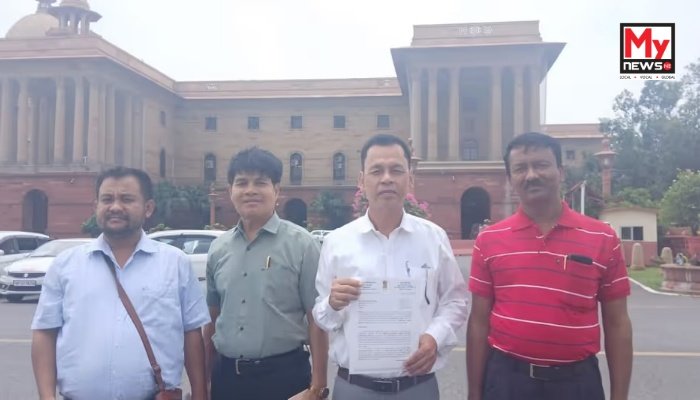Tipra Motha MLA Urges Delhi Recognition for Tripura’s Last Maharaja
New Delhi: A prominent voice from Tripura, Tipra Motha Party MLA Ranjit Debbarma, has penned a fervent appeal to Prime Minister Narendra Modi, seeking to immortalise the legacy of Tripura’s last Maharaja, Bir Bikram Kishore Manikya Bahadur, in the heart of the national capital. The request, made in a letter to the Prime Minister, outlines a multi-pronged proposal for honouring the revered monarch.
Debbarma’s letter calls for the nomenclature of a road in New Delhi in the name of Maharaja Bir Bikram Kishore Manikya Bahadur, to be known as “Maharaja Bir Bikram Kishore Manikya Bahadur Marg.” He further pressed for the establishment of a statue of the Maharaja at a prominent street corner in Delhi, acknowledging his pivotal role in Tripura’s integration with India.
Beyond commemorative structures, the Tipra Motha legislator also sought to showcase Tripura’s rich cultural and spiritual heritage within the Indian National Museum. His proposal includes the setting up of a replica of the sacred Tripureswari Temple, complete with the revered Goddess Mata Tripureswari, alongside a representation of the Chaturdas Devta Mandir of Tripura, housing its fourteen revered deities.
The Tipra Motha Party, founded by royal scion Pradyot Kishore Manikya Debbarma, currently shares an alliance with the ruling BJP in Tripura. Maharaja Bir Bikram Kishore Manikya Bahadur holds the distinguished position of being Pradyot Kishore’s grandfather.
In his correspondence, the Tipra Motha MLA underscored the historical significance of Maharaja Bir Bikram Kishore Manikya Bahadur’s reign, particularly through the actions of his wife, Maharani Kanchanprava Devi. Debbarma highlighted that Maharani Kanchanprava Devi, along with representatives, signed the crucial Merger Agreement on September 9, 1949, paving the way for the princely state of Tripura to accede to India. Consequently, on October 15, 1949, Tripura formally annexed with India, becoming an integral part of the Indian Union.
Debbarma further elaborated on the deep cultural and religious significance of the Tripureswari Temple in Udaipur and the Chaturdas Devta Mandir in Old Agartala (Khayerpur), both established by the Maharajas of the Tripura Dynasty. He emphasised that these temples hold immense faith and belief for a large number of devotees from diverse backgrounds and religions over an extended period.
Drawing a parallel, Debbarma pointed out that a road in Delhi has already been named “Tikendrajit Marg” in honour of a crowned prince from Kangleipak (Manipur). He argued that similarly, a road should be named after Maharaja Bir Bikram Kishore Manikya Bahadur, especially considering the princely state of Tripura merged with India in alignment with his pre-demise wishes to be part and parcel of the Indian Union.
“As such, to show the respect and honour to our prestigious king Maharaja Bir Bikram Kishore Manikya Bahadur, it is the prolonged demand of the people of Tripura to nomenclate a road inside New Delhi in the name of Maharaja Bir Bikram Kishore Manikya Bahadur as ‘Maharaja Bir Bikram Kishore Manikya Bahadur Marg’ and establish a Statue in the name of same Maharaja in a street corner (Road Junction/Marg) and to set up replica of ‘Tripureswari Temple’ with the Goddess of ‘Mata Tripureswari’ including the temple of ‘Chaturdas Devta Mandir’ containing ‘fourteen deities’ inside the Indian National Museum, Delhi,” the letter concluded, encapsulating the aspirations of the people of Tripura.
Read More: ZPM Government Hailed for Transformative First Year in Mizoram

